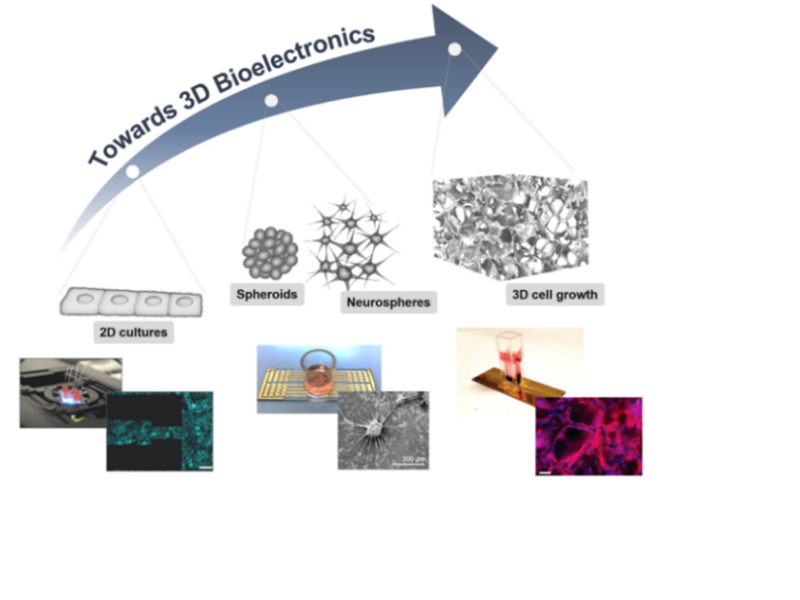To: 18/07/2022 14:00
3D in vitro cell models have advanced enormously in the past decades in response to failures of 2D cultures to enable translation of targets during the drug discovery process. While the majority of recently developed in vitro systems yield sufficient complexity, methods for in situ evaluation of 3D cell models and tissues in a label-free manner and high-throughput configuration are still limited. Although conventional (inorganic) in vitro bioelectronics provide a solution to overcome such limitations, they cannot fully match the requirements for efficient cell–chip coupling. The advent of organic bioelectronics has opened new avenues in interfacing electronics with biology, given their unique set of properties (i.e., ionic/electronic conductivity, low impedance) for electrophysiology and their inherent “soft” nature. In this talk, Dr. Pitsalidis will discuss recent progress in organic bioelectronics for interfacing with 3D cell cultures (Figure 1), aiming ultimately to develop next generation in vitro platforms. Focus is placed on polymeric electroactive scaffolds-based devices that are used to simultaneously host and monitor complex multi-cellular models of tissues and organs. The key aspect of these bioinspired platforms arises from the incorporation of in-line electronic elements which can be used for in situ functional evaluation of the cell tissue in real-time and in a non-invasive manner, without compromising the ability to carry out end-point assays.



